
The/Nudge Foundation
View Brand PublisherHow Pragati by Meta and The/Nudge Centre for Social Innovation are supporting women-led non-profit organisations to drive social change
Under the accelerator and incubator programme, the participating organisations get access to funds, donors, and a chance to be mentored by an esteemed group of mentors who have built for scale in either the for profit or non-profit sector.
When the COVID-19 pandemic struck in 2020, there were many good Samaritans like Surabhi Yadav who came forward to pitch in with the relief efforts. While ensuring that the required aid reached the beneficiaries, Surabhi got an unusual request.
“I met a girl whose name was Phula Kumari and who had studied till class 12 . She belonged to the Musahar community. She didn't ask me for money or food. Instead, she said: Didi, please teach me. I can even study over phone calls. Her interest in continuing education led me to observe how class, caste, gender and geography restricts women from pursuing a career of their choice and instead settle for traditional livelihoods,” Surabhi explains.
Driven by her motive to ensure that rural women like Phula had a fair chance at building a career, Surabhi started Sajhe Sapne in 2020. The organisation provides end-to-end career support to young women, between the ages of 17 and 25, in villages. “We offer support in the form of exposure, mobilisation, training, employment and on-job mentoring and networking,” adds Surabhi.
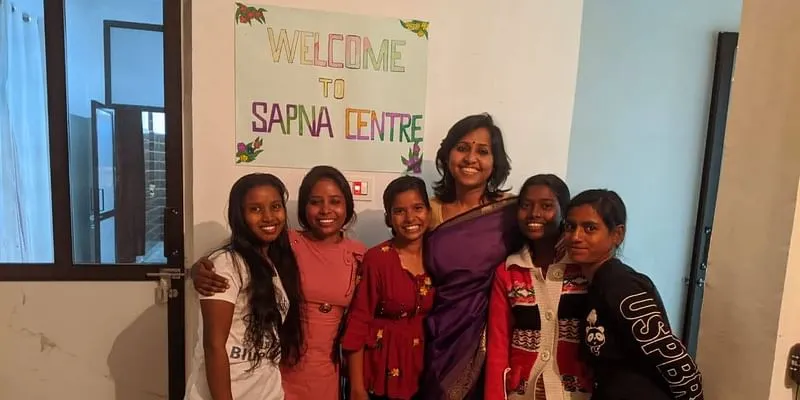
Established by Surabhi Yadav, Sajhe Sapne provides end-to-end career support to young women living in villages
Himachal Pradesh-based Sajhe Sapne is among the six organisations that are participating in a programme powered by The/Nudge Foundation and Pragati by Meta, with five organisations in the incubator (including Sajhe Sapne) and one in the accelerator programme. The initiative aims to incubate and accelerate early-stage non-profit organisations that are working for women empowerment and help them progress with adoption of technology.
Under the programme, the participating organisations get access to funds, donors, and a chance to be mentored by an esteemed group of mentors who have built for scale in either the for profit or non-profit sector.
Talking about the incubation programme , Surabhi describes it as a ‘firm, but necessary reality check for organisations’. “The/Nudge Centre for Social Innovation (CSI) seems to have a clear ambition - to make non-profit organisations bolder and stronger. The mentors give insights that are not sugar-coated and encourage us to aim for bolder benchmarks.”
“With more than 800 million internet users in the country only 33% are women and there exists a huge gap which needs to be bridged. We are making efforts to bring gender parity to the internet by not only giving access to more women but also giving growth opportunities and platforms to women entrepreneurs and women-led businesses. The impact we have seen with our first cohort of Pragati is a testament to the fact that we are moving in the right direction and we are committed to helping women entrepreneurs succeed through greater access to digital platforms,” says Madhu Singh Sirohi, Head of Policy Programs & Outreach, India at Meta
Driving impact across sectors, across lives
Being sector-agnostic, Pragati by Meta and The/Nudge CSI has been able to help enterprises build solutions to counter several societal challenges, be it women education, livelihood generation or maternal health.
Tisser is a social organisation that provides skilled and sustainable rural employment to artisans while preserving India's traditional handicrafts. Its business model focuses on inclusive cluster development by helping artisans upskill and providing them support in terms of access to finances, technology and marketing. Launched by Megha Phansalkar in 2014, the organisation is also a part of the incubator programme launched by Pragati by Meta and The/Nudge CSI.
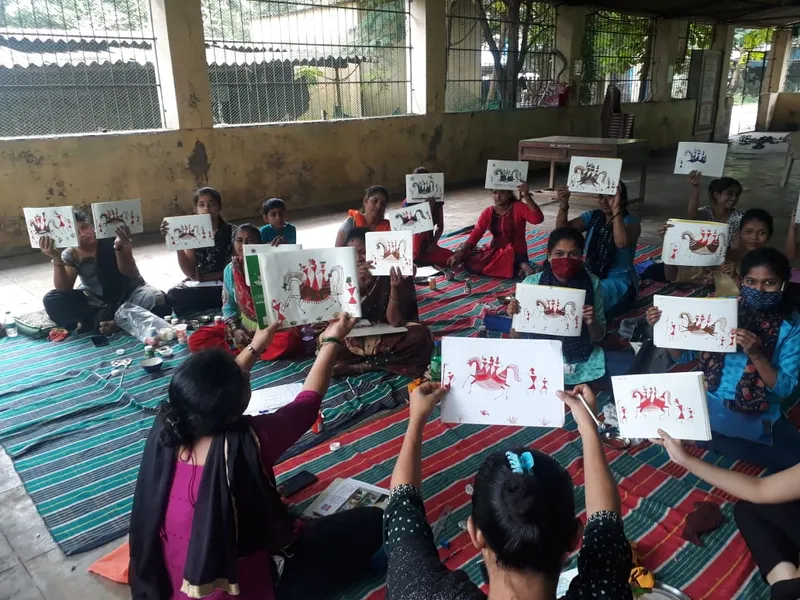
With Tisser, Megha Phansalkar aims to offer sustainable employment to artisans while preserving traditional handicrafts
“I found the mentoring sessions on the role of advisory boards, handling hybrid models and thinking out of the box to be extremely helpful. They gave me an insight into how I should lead Tisser and create seamless supply chains through technology-based solutions,” she adds.
Megha founded Tisser after working with artisans for over 18 years as part of a National Rural Livelihood Mission project. “I saw the conditions that these artisans worked in and also studied how fragmented value chains were hampering the handicrafts sector. I started Tisser with a mission to become a value chain partner for vulnerable artisans, especially women,” says Megha. The Mumbai-based organisation’s achievements include 200+ cluster products and empowering over 3,000 women entrepreneurs.
Seeing the silver lining in a dark cloud
The Pragati by Meta programme and the guidance from The/Nudge CSI’s mentors enable the incubatees to do more with less and think out of the box while powering through challenges like COVID-19. As the global pandemic dashed plans of businesses across the globe, there were many incubatees that saw the crisis as an opportunity to pivot and scale. Take the example of Bengaluru-based Esther. The organisation helps women graduates from Tier 2 and Tier 3 cities formally enter the workforce by making them 'industry-ready' through digital tools.
“While the pandemic put a lot of pressure on businesses, there were also some learnings. For example, while online learning is still riddled with challenges like low connectivity, it also paved the way for many women college students to finally own a smartphone. Many of them were even first-generation digital users in their families. They now had access to a range of opportunities that were earlier inaccessible,” says Agneta Venkatraman, Co-Founder, Esther.
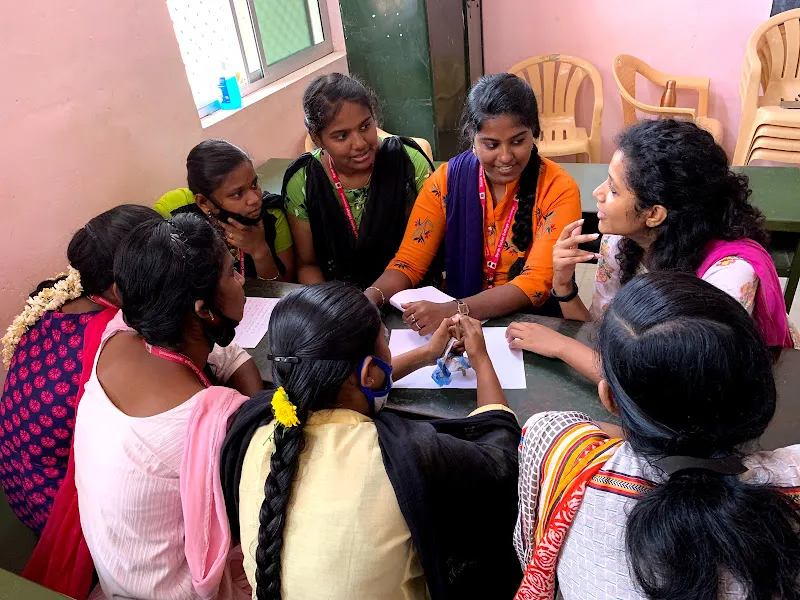
Founded by Agneta Venkatraman and Ravali P, Esther helps women graduates become 'industry-ready' through digital tools
Inspired by her own experiences of braving gender inequalities, Agneta launched Esther with her co-founder Ravali P in 2021. Operating with just a five-member team, the non-profit organisation has already helped more than 200 women with its focus on instilling gender equality in Indian society.
The case isn’t any different for Ekibeki — a Mumbai-based social enterprise that develops contemporary products in partnership with artisans, provides them technical inputs and creates product-market linkages to help craftsmen get the right price for their hard work.
Launched by Vishpala Hundekari in 2018, the organisation’s operations came to a grinding halt when the pandemic struck. Rather than giving up, Vishpala and her team trained folk artisans to build their catalogues and helped them sell their products on e-commerce sites.
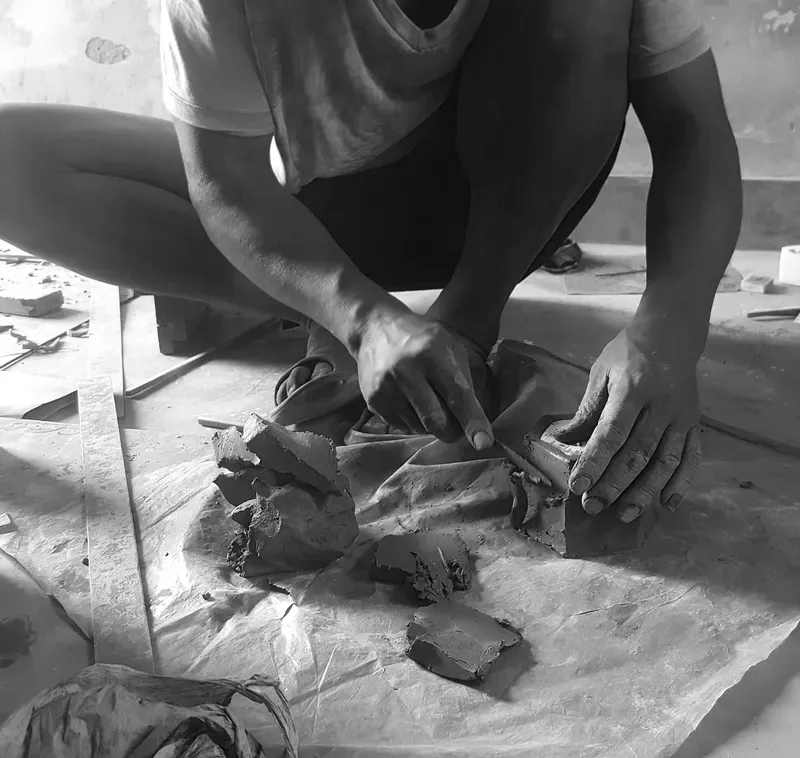
Vishpala Hundekari's EkiBeki empowers artisans by helping them with technical inputs, product-market linkages and get the right price for products
“The pandemic taught me to pivot for better results if the situation calls for it. We were not selling products online before the pandemic and that changed during the lockdown. Not only did we move to online sales, but also trained hundreds of artisans in doing so,” she adds.
A former architect and furniture designer, Vishpala decided to launch a social enterprise like Ekibeki after seeing her clients bringing back paintings from other countries, while forgetting about the rich artistic talent of Indian artists.
“The acceptance I receive from artisans and the simple smiles on their faces is the driving force behind Ekibeki,” she says. At the same time, she feels what sets the incubation programme launched by Pragati by Meta and The/Nudge CSI apart from other similar initiatives is that it looks at the needs of an early-stage social enterprise from all angles.
“With COVID-19 reversing gender equity gains eked out over a decade or more across the globe, it has become imperative to ensure that women entrepreneurs running non-profits to empower women are given the right kind of support in India. We are delighted to have found a like-minded partner in Meta to enable us to do this on a multi-year basis, because a sustained effort is the only way to drive change on this account,” says Akshay Soni, Managing Director, The/Nudge Accelerator.
Encouraging social entrepreneurs to dream big
Deepa Pant, Co-founder, SVATANYA India Foundation feels that early-stage social enterprises can learn a lot by participating in the unique programme that features industry veterans as mentors.
“The pool of mentors comprises industry leaders and veterans and yet the humility with which they interact is both inspiring and admirable,” she adds.
Recalling an interaction with a mentor during the programme that touched her heart, Deepa says, “A senior mentor once said that entrepreneurs need not look up to or be grateful to their mentors for mentoring them. Rather, the mentors should be equally grateful for the opportunity to engage with entrepreneurs. The experience was truly humbling,” she adds.
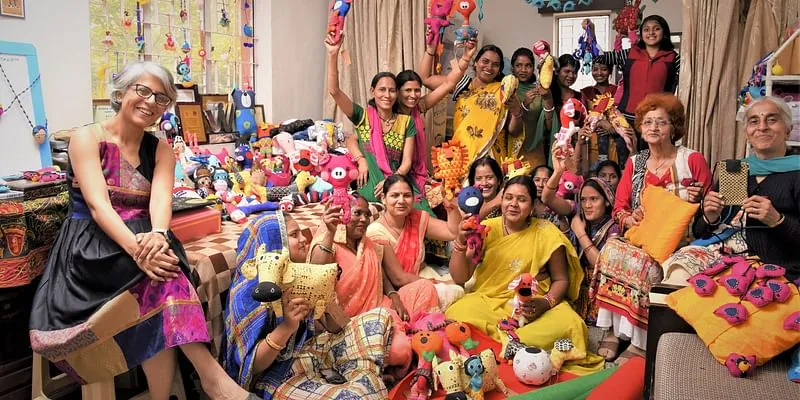
Launched by Deepa Pant, SVATANYA trains underprivileged women to create sustainable handcrafted products
A fashion designer with two decades of experience, Deepa had many achievements to her credit, right from working with international labels to launching a domestic label. However, it was an opportunity to work with underprivileged children and interact with their mothers — most of them uneducated migrant women looking for opportunities to earn — that led her to question if her job had a purpose.
“I couldn't help but empathise with them. Almost 99 percent of migrant women in India are not educated, have no formal training, or work experience and are often not allowed to get out of their homes due to patriarchal norms.”
The bleak picture motivated her to launch SVATANYA India Foundation in 2018, a design solutions enterprise that trains underprivileged women to create sustainable handcrafted products.
“SVATANYA provides these women an opportunity to work from home and gives them the flexibility to take care of their domestic responsibilities and earn,” she adds.
The success story of Shruthi Iyer, CEO and Co-Founder, Foundation for Mother & Child Health (FMCH) is yet another example of the change that Pragati by Meta and The/Nudge CSI are driving. A part of the programme’s accelerator, the organisation is working to bridge gaps in access and awareness about malnutrition and maternal health in vulnerable communities with technology. While FMCH was launched in 2006, Shruthi’s coming on board as CEO and cofounder in mid-2019 reinvigorated the organisation. With her at the helm, the organisation moved to a tech-enabled platform and quickly scaled up to serving 20,000 women annually. It clocked 5x growth in three years, despite the disruption caused by COVID-19.
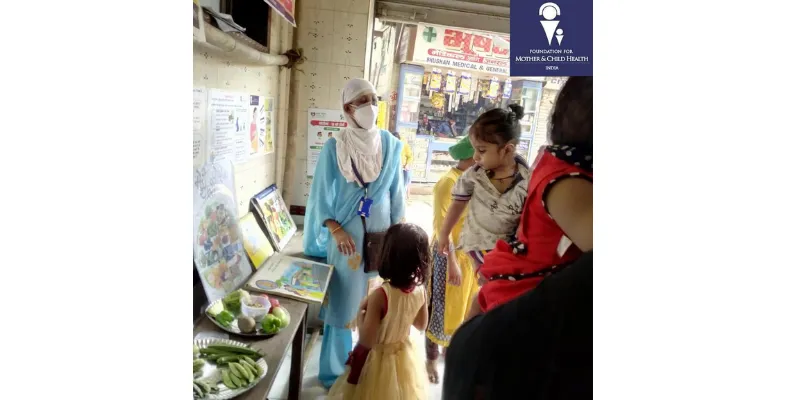
Shruthi Iyer is leading FMCH to bridge gaps in access and awareness about malnutrition and maternal health with technology
Based out of Mumbai, FMCH works with families in the first 1,000 days of a child’s life and helps them with contextual, timely and actionable information and support. Thereby, helping them make the right nutritional choices for the women and children in their families.
Explaining how the Pragati by Meta and The/Nudge CSI accelerator programme stands apart from other similar initiatives, Shruthi says, “The combination of access to mentors and unrestricted grants are both rare in the non-profit sector. The mentors at The/Nudge CSI are a perfect mix of empathy and efficiency. They trust us with the work, and look at us as true partners. Despite it being a donor organisation, I did not experience a power tussle, which is liberating.” The organisation has impacted over 5L families since its inception.







